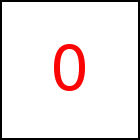ambientAdjust Library Method
Short Description: Ajust Ambient Color
Signature: x.ambientAdjust (f[,d,[a]])
Class: taccglMTLFile Class
"Repairs" ambient (and possibly adapts diffuse) colors in a
model that does not have correct ambient color
definitions. Obviously the "right" thing to do would be to
fix models with ambient color problems within the program
that created them. However, often this method is a good work
around.
ambientAdjust
sets the ambient light adjustment factor f. This is useful
if you, for some reason, do not set the ambient color in the MTL file.
Per default f is 0, which does not modify the ambient
color values in the MTL file. If f>0 the diffuse color is
multiplied by f and added to the ambient color.
In addition the diffuse factor d can be set. The
diffuse factor d defaults to 1. If specified all
diffuse color values in the MTL file are multiplied
by d. Typically a value <1 is used to reduce diffuse
colors a bit in order to compensate for increased ambient colors using
f.
The ambient color factor a defaults to 1. All ambient color
values in the MTL file are multiplied by a. For example a
value of a=0 is useful in case ambient color values in the
file are broken and should not be used.
If taccgl™ detects that all ambient color values in a file created
with blender are 0 then it automatically does ambientAdjust (0.6,0.6).
If all ambient color values are >0.8 or 0 then ambientAdjust (0.6,0.6,0).
If this is not intended, ambientAdjust can be called again
before the model is used, to set correct values.
In the sample MTL file used for the examples below, the ambient color has
not been set at all, i.e. it is (0,0,0). ambientAdjust is used
to set the ambient color to a certain percentage of the diffuse Color in
the MTL file.
Examples
var to=taccgl.objFile().read('/objtest/taccgldoc.obj',false); to.mtl.ambientAdjust(0.4); var a=taccgl.a("Layout",to.scene()).modFit(). rotateMiddle(Math.sqrt(1/3),Math.sqrt(1/3),Math.sqrt(1/3)).dur(8).start(); | RUN |
var to=taccgl.objFile().read('/objtest/taccgldoc.obj',false); to.mtl.ambientAdjust(0.0); var a=taccgl.a("Layout",to.scene()).modFit(). rotateMiddle(Math.sqrt(1/3),Math.sqrt(1/3),Math.sqrt(1/3)).dur(8).start(); | RUN |
var to=taccgl.objFile().read('/objtest/taccgldoc.obj',false); to.mtl.ambientAdjust(0.8,0.4); var a=taccgl.a("Layout",to.scene()).modFit(). rotateMiddle(Math.sqrt(1/3),Math.sqrt(1/3),Math.sqrt(1/3)).dur(8).start(); | RUN |
var to=taccgl.objFile().read('/objtest/taccgldoc.obj',false); to.mtl.ambientAdjust(0.6,0.6); var a=taccgl.a("Layout",to.scene()).modFit(). rotateMiddle(Math.sqrt(1/3),Math.sqrt(1/3),Math.sqrt(1/3)).dur(8).start(); | RUN |
var to=taccgl.objFile().read('/objtest/taccgldoc.obj',false); to.mtl.ambientAdjust(0.8,0.6); var a=taccgl.a("Layout",to.scene()).modFit(). rotateMiddle(Math.sqrt(1/3),Math.sqrt(1/3),Math.sqrt(1/3)).dur(8).start(); | RUN |
var to=taccgl.objFile().read('/objtest/taccgldoc.obj',false); to.mtl.ambientAdjust(0.6); var a=taccgl.a("Layout",to.scene()).modFit(). rotateMiddle(Math.sqrt(1/3),Math.sqrt(1/3),Math.sqrt(1/3)).dur(8).start(); | RUN |
var to=taccgl.objFile().read('/objtest/taccgldoc.obj',false); to.mtl.ambientAdjust(1.0); var a=taccgl.a("Layout",to.scene()).modFit(). rotateMiddle(Math.sqrt(1/3),Math.sqrt(1/3),Math.sqrt(1/3)).dur(8).start(); | RUN |
var to=taccgl.objFile().read('/objtest/taccgldoc.obj',false); to.mtl.ambientAdjust(1,0); var a=taccgl.a("Layout",to.scene()).modFit(). rotateMiddle(Math.sqrt(1/3),Math.sqrt(1/3),Math.sqrt(1/3)).dur(8).start(); | RUN |
WebGL™ is a trademark of the Khronos Group Inc.
|





